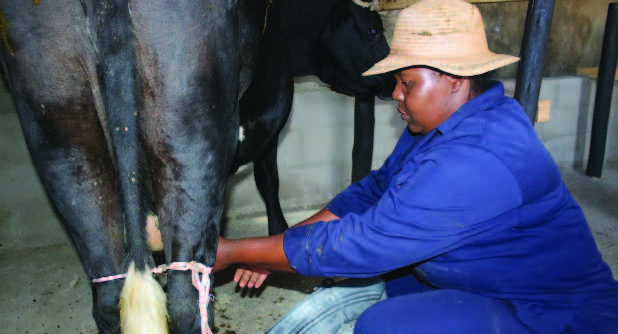In 2019, 17.3% of South Africans were estimated to be suffering from moderate to severe food insecurity, while 7% were estimated to be affected by severe food insecurity. 
This is according to Statistics South Africa (StatsSA) Survey Statistician Dr Nathaniel Dlamini, who was part of a recent Vuk Talks webinar that saw a panel of experts from the Department of Agriculture, Land Reform and Rural Development (DALRRD), AgriSA and Statistics South Africa (Stats SA) discuss how subsistence farming can sustain food security and alleviate poverty.
Dlamini says while the agriculture sector plays a significant role in food security by keeping South Africans fed through the production of beef, poultry, fish, fruits and vegetables and grains and maize, the country faces various challenges that affect food security, including poverty, unemployment, income inequality and climate change.
“Poverty-stricken households lack money to buy food and are constrained by the inability to secure employment or generate an income,” he adds.
Tackling challenges
The Director of Smallholder Development at the DALRRD, Dr Jemina Moeng, says government has put various mechanisms in place to address food insecurity and continues to implement the National Food and Nutrition Safety Plan (NFNSP) 2018 to 2023.
“The National Food and Nutrition Safety Council has been established, and the Human Sciences Research Council is continuing with its study to review and analyse possible additional sources for funding and implementing the NFNSP,” says Moeng.
The Presidential Employment Stimulus is also facilitating self-employment and improving the livelihoods of marginalised households.
As part of the stimulus, the DALRRD is focussing on subsistence producers to enable them to produce their own food; intensify the production of certain high-value crops, such as avocados; and increase the production of grains and oilseed crops, horticultural crops (fruit and vegetables), livestock (cattle, sheep, goats and pigs) and poultry (broilers and layers).
“Training is being provided on agro-processing and market access through the Smallholder Horticulture Empowerment and Promotion approach; contractual employment is being created for youth (unemployed and graduates) through on-farm placement; and agro-value chain businesses for women and youth in rural, peri-urban and urban areas is being facilitated,” says Moeng.
The department also provides a comprehensive agricultural support programme, in the form of grants, and the Ilima/Letsema programme, for subsistence producers, enables people to produce their own food.
The Executive Director of AgriSA, Dr Christo van der Rheede, says the organisation has implemented various development programmes for farmers and recently approved a number of blended finance loans for a range of black female and male farmers. For more information about the programmes, visit https://agrienterprises.co.za.
Beneficiary shares her success
Agripreneur Lerato Senakhomo, the Director of Senakhomo farm in Sedibeng in Ekurhuleni, is one of the DALRRD’s beneficiaries.
She owns a 435-hectare farm which she uses for grain, pasture and livestock production.
Senakhomo has won numerous awards over the years, the latest being the Agricultural Research Council’s National Beef Emerging Farmer of the Year (2020).
She is part of the Gauteng Department of Agriculture and Rural Development and Industrial Development Corporation’s Nguni Cattle Development Project which aims to reintroduce the Nguni breed in black farming communities in the province.
“I became involved in the programme in 2018 and got 72 cattle via a loan which must be repaid within seven years,” says Senakhomo.
She also buys sheep and goats from local auctions, fattens them up and resells them to local clients.
Last year, she planted 80 hectares of maize and 40 hectares of soya; and her pasture produces 300 bales twice a season. Thanks to a new tractor she received from DALRRD, her maize production has increased to 160 hectares.
The farm employs eight permanent and 36 seasonal workers. It also benefitted from the COVID-19 Relief Fund which, she says, helped her to buy supplements for the animals ahead of winter.
For more information about DALRDD grants and assistance, contact your provincial DALRDD office or visit www.dalrrd.gov.za



 Facebook
Facebook Twitter
Twitter WhatsApp
WhatsApp